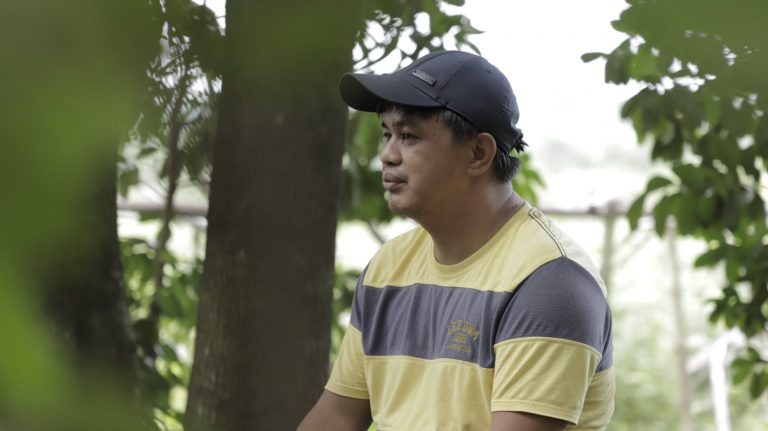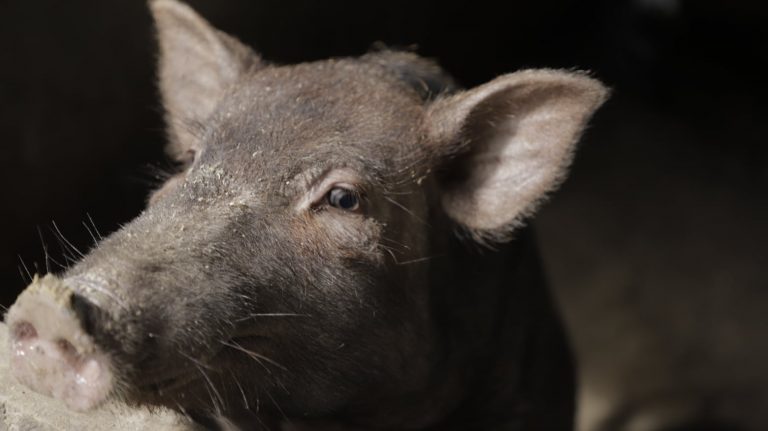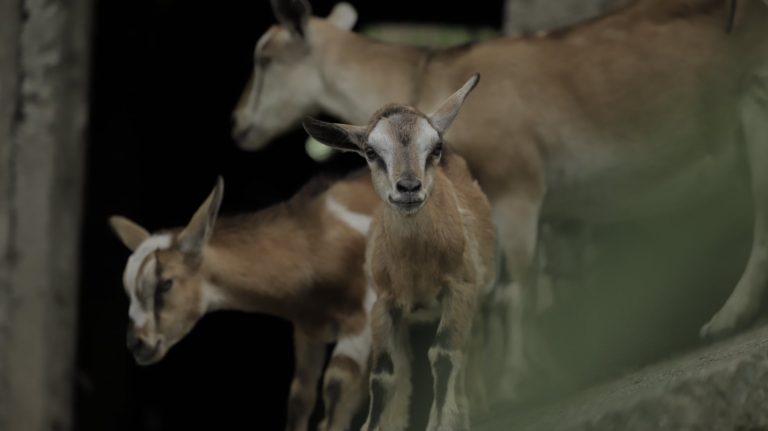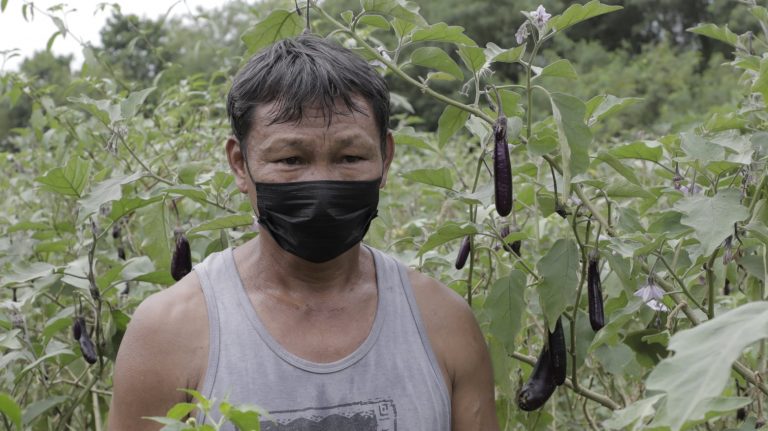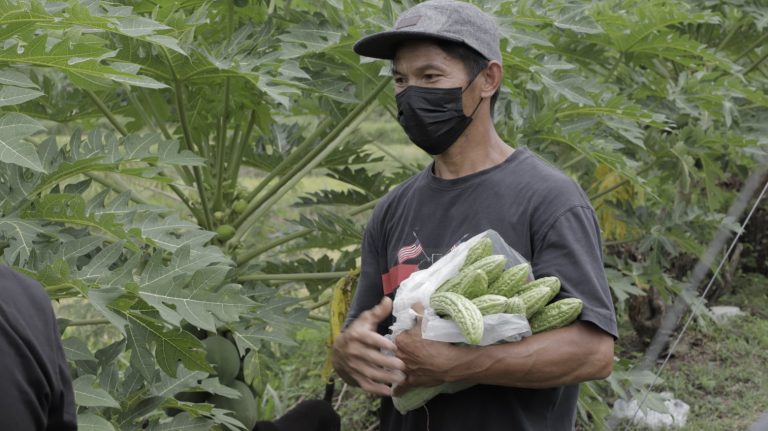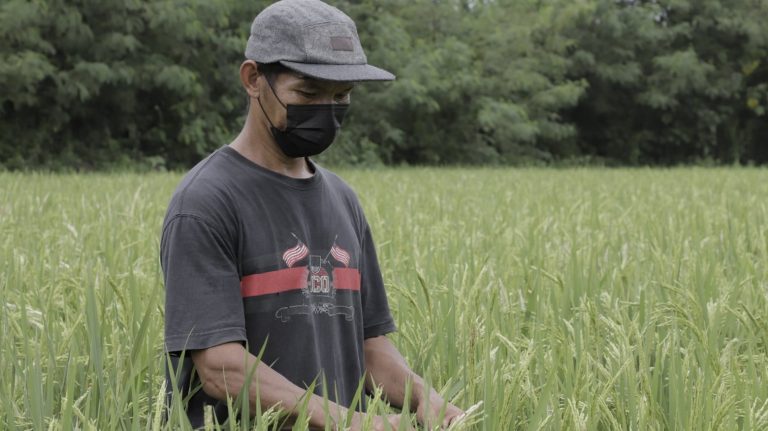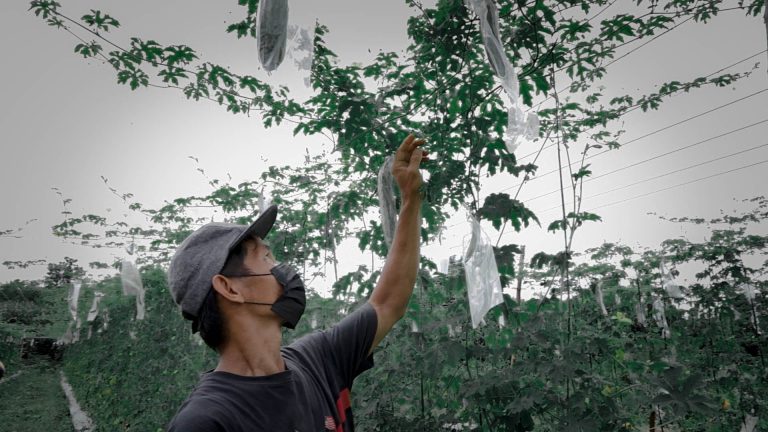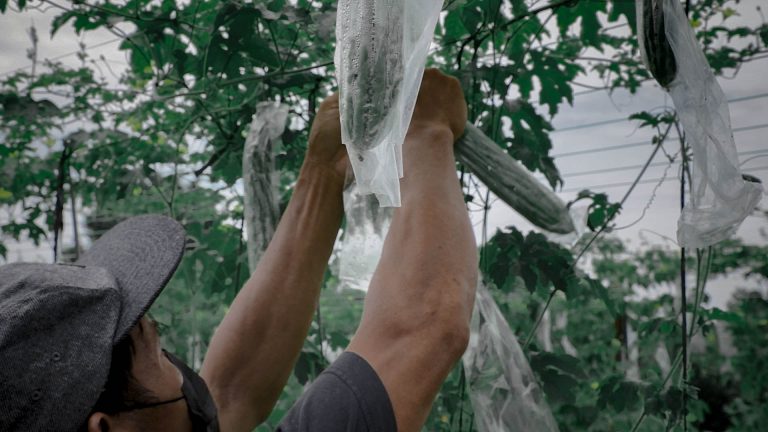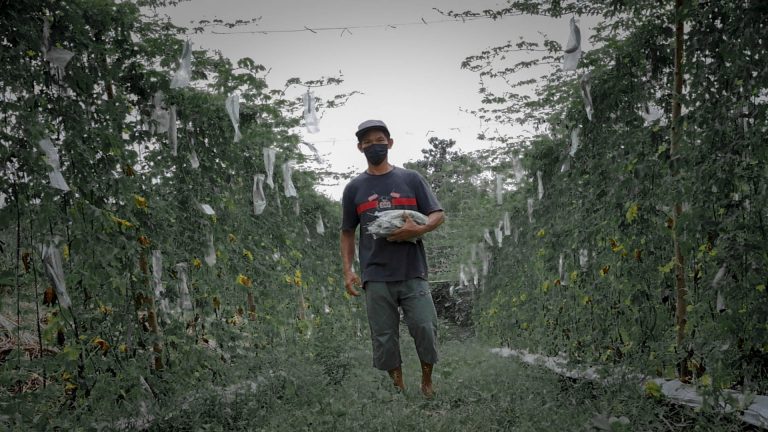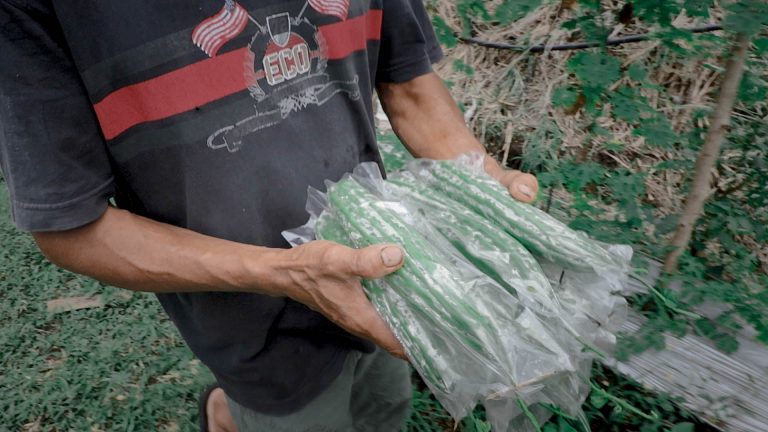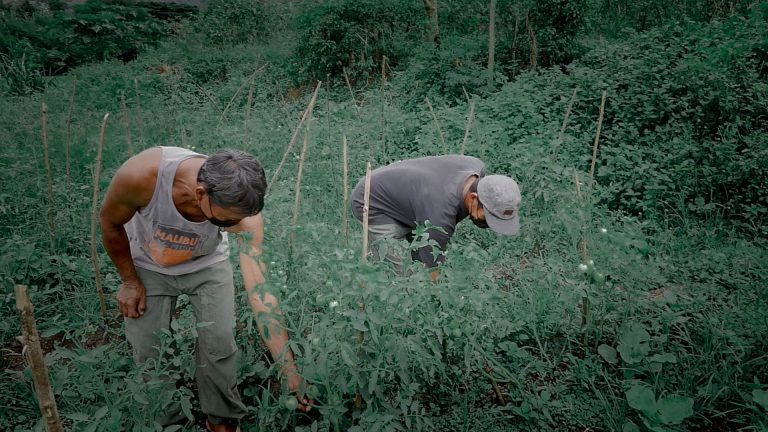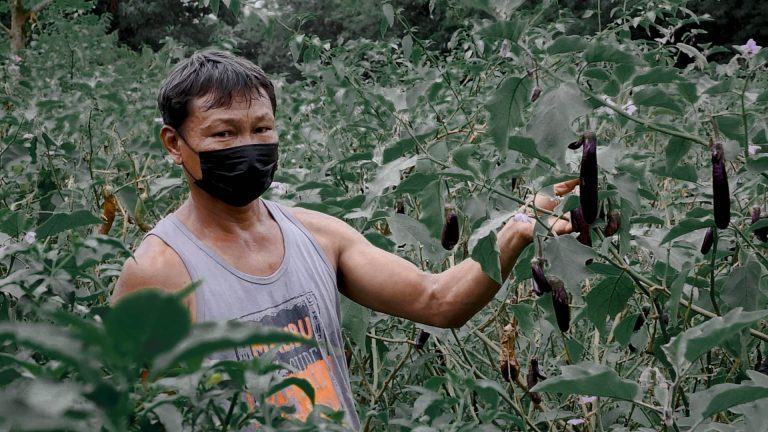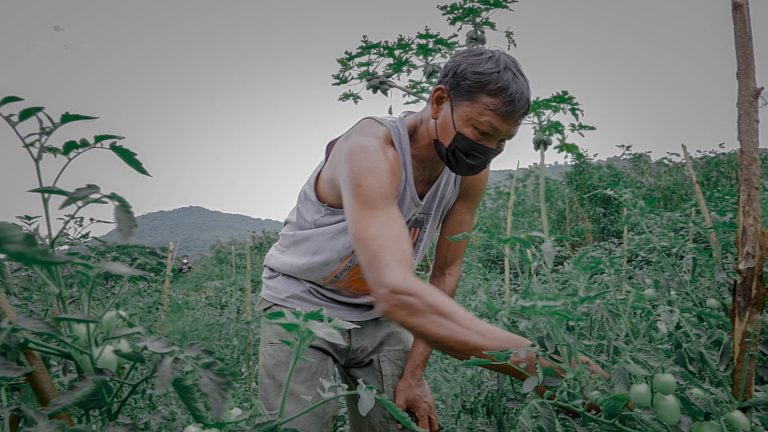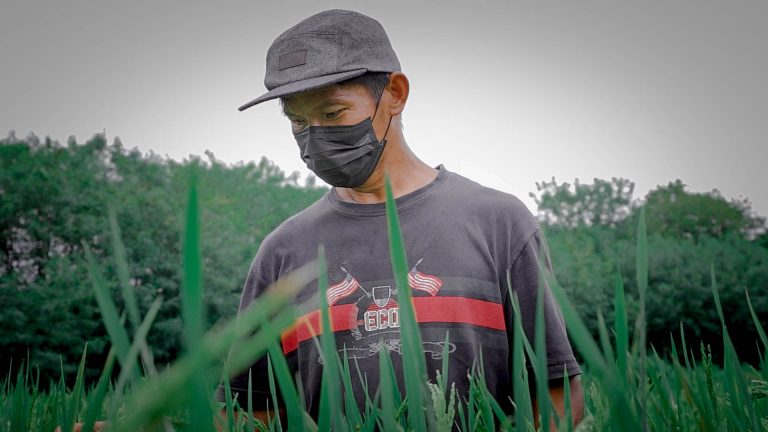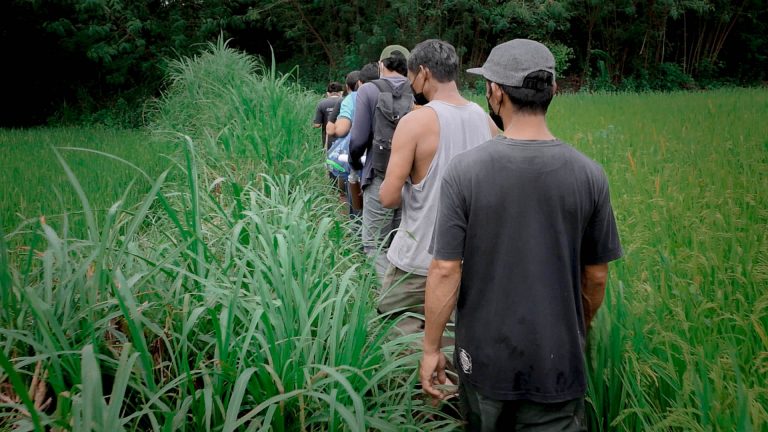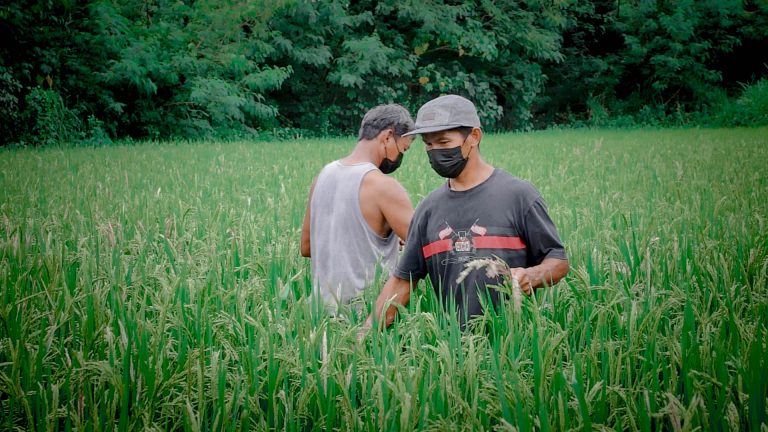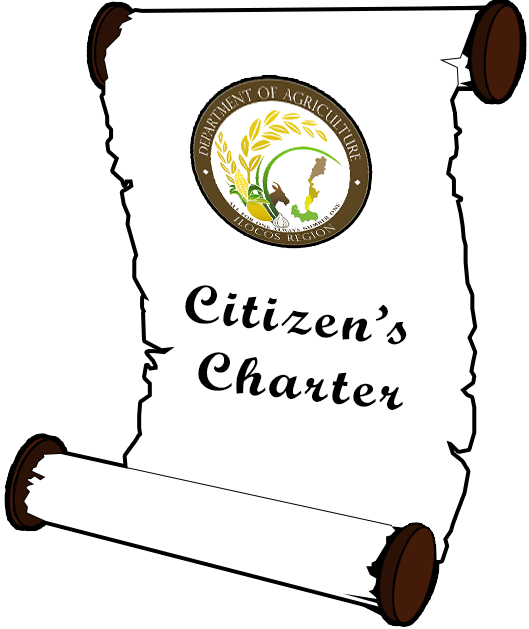Sitio Liyaba in Brgy. Calunetan is an interior town of Sison in the province of Pangasinan. Before reaching the barangay proper, one has to traverse by land for at least 10 kms away from the town proper. More so, before reaching the Sitio Liyaba, one has to trek at least 5 kilometers more.
The DA-Regional Agriculture & Fisheries Information Section (RAFIS) team, upon the invitation of the AMIA program for a documentation of the farmers’ association here, have gone through this journey with the mission of learning the success story of the Caliya Gawis Farmers’ Association.
The Caliya Gawis FA is among the 14 sites of the AMIA or Adaptation and Mitigation Initiative in Agriculture program of the Department of Agriculture in Ilocos Region.
The inspiring story of Caliya Gawis all started in the early part of 2019. By looking for an answer to their problems on low productivity and income, 24 farmers of sitio Liyaba underwent a season long training on farmer field school (FFS) on rice and vegetable production. This undertaking opened greater opportunity for them to become self-reliant and profitable farmers today.
Upon the initiative of the Local Government Unit of Sison, Pangasinan and in collaboration with the Department of Agriculture, farmer-members have gone through a series of lectures and hands-on training on animal feed formulation as well as rice and vegetable productions.
With the many learnings they acquired on crops and animal production through the FFS, several changes were made not only in terms of their attitude towards adopting the technologies they learned but mostly on their mindset towards farming as a business venture using their around 57 hectares production area.
Having learned the importance of grouping themselves into an association, the group led by Mr. Danilo Manangan organized into an association on November, 2019 and named it as the Caliya Gawis Farmers Association – formed from the name of the place Calunetan and Liyaba, the name of the barangay and the sitio, respectively.
Registered at the Securities and Exchange Commission (SEC) last March 2020, the end goal is to create platform for the farmer-members to avail of the government’s programs and projects.
Having registered in the Registry System for Basic Sectors in Agriculture (RSBSA), the members have enjoyed availing various production inputs from the government such as but not limited to seeds and fertilizer as well as biologics and are awaiting the approval of their request on particular farm machinery & equipment.
Aside from this project, the members were also given an opportunity to widen their capacities and business knowledge through the conduct of a series of trainings introduced to them by the AMIA like training on organic concoctions making, as well as hogs and broiler production.
Through the program, farmer-members learned not only to evolve as better and resilient farmer but to become agribusiness entrepreneurs with the many livelihood projects that they acquired through the project.
Enhancing their skills and providing them an additional livelihood, food processor equipment such as fruit juicer and dough rollers were given to the members leading them to become more enterprising.
In addition to this livelihood project, the AMIA program also provided 20 heads native pigs distributed to the members with the agreement that a minimum of P500 shall be given back to the association as revolving fund together with one head of female native pig that can be turned-over to the other member.
Also, members who are the beneficiaries of the free-range chicken shall pay the association a minimum of P150.00 to become the association’s revolving fund giving them additional source of income generating project.
At the moment, from the 30 heads of native pigs and 180 heads of native chickens originally awarded by the AMIA program, the association has now an inventory of 39 heads of native pigs (plus 6 heads sold) and 50 heads of chickens.
With the continuous implementation of the project, the association has now kept additional cash funds in the bank and have an existing P7,000 as cash revolving fund under the steward of the treasurer of the group.
Vegetable gardens were also put up that are planted with tomatoes, ampalaya, eggplant, chilli pepper and papaya which provide farmer-members additional income.
In fact, Herminio Viduya, the Vice-President of the group claimed to have a 20% increase in his income as a farmer with the various interventions he has received from DA thru the AMIA project, among others.
The Caliya Gawis Farmers Association, with their testimony of increased productivity and income attributed to the programs and projects of DA that they received, has set a good example that coming together is a beginning; keeping together is progress and working together is success.###
